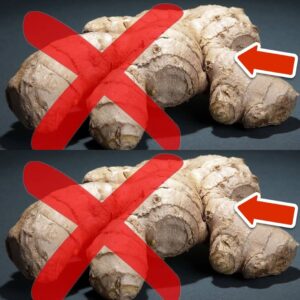Ginger is a popular spice with numerous health benefits, including reducing inflammation, aiding digestion, and relieving nausea. However, not everyone can safely consume ginger. For individuals with certain health conditions, ginger may cause more harm than good. Below are some situations where you should avoid or limit ginger in your diet.

1. Gallstones
Ginger stimulates bile production, which can exacerbate symptoms in people with gallstones. Increased bile flow may lead to discomfort or complications, so those with gallbladder issues should consult a doctor before consuming ginger.
2. Bleeding Disorders
Ginger has natural blood-thinning properties, which can increase the risk of excessive bleeding. People with bleeding disorders such as hemophilia or those taking anticoagulant medications like warfarin should avoid ginger to prevent potential complications.
3. Pregnancy (With Caution)
While ginger can relieve morning sickness, excessive consumption during pregnancy may increase the risk of miscarriage or premature labor, especially in the later stages. Pregnant women should only consume ginger in small, doctor-approved amounts.
4. Low Blood Pressure
Ginger is known to lower blood pressure by relaxing blood vessels. For individuals with already low blood pressure (hypotension), this can lead to dizziness, fainting, or even shock in severe cases.
5. Diabetes
Ginger can lower blood sugar levels, which may interfere with diabetes medications and cause hypoglycemia. If you have diabetes, consult your healthcare provider before adding ginger to your diet.
6. Acid Reflux or GERD
Ginger is spicy and can sometimes irritate the esophagus or worsen symptoms of acid reflux and GERD. Individuals with these conditions may experience heartburn or discomfort after consuming ginger.
7. Heart Conditions
Ginger can influence heart rate and blood pressure, potentially leading to irregular heartbeats in some individuals. Those with heart conditions or taking medications for cardiovascular issues should exercise caution.
8. Recent Surgery
Due to its blood-thinning effects, ginger can interfere with the healing process after surgery and increase the risk of bleeding. Doctors typically advise avoiding ginger for at least two weeks before and after any surgical procedure.
Final Thoughts
While ginger offers numerous health benefits, it’s not suitable for everyone. If you have any of the conditions mentioned above, consult your healthcare provider before incorporating ginger into your diet. Remember, moderation is key, and individual tolerance levels vary.


